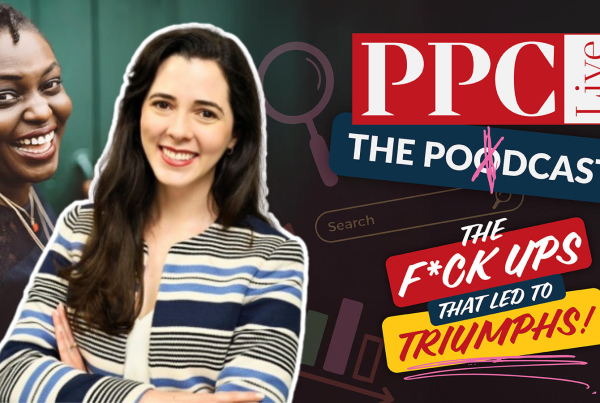Every few years, a new channel takes center stage — short-form video, podcasting, or AI-generated content — and people start asking the same question: “Are blogs dead?”
It’s a fair question. After all, platforms evolve and audience habits shift. But the idea that blogs are irrelevant today? That’s a myth I was eager to investigate.
To get a clear answer, I turned to marketers across SEO, content, and digital strategy to find out whether blogging is still worth the investment. Here’s what they said.
Table of Contents
Are blogs dead?
According to marketers, not even close.
Blogs aren’t just alive — they’re evolving. According to HubSpot’s 2025 State of Blogging report, half of marketers say they saw better ROI from blogging in 2024 than the year before. And nearly half plan to invest even more in 2025.

But the way we blog is changing fast. Over 90% of marketers now use AI tools somewhere in their workflow, and Google’s AI Overviews are already reshaping how — and if — blog content gets discovered.
The bar is higher than it’s ever been, but the payoff is still there for those willing to meet it.

That said, “Are blogs dead?” is a question that refuses to go away. Every time a new platform gets hot — whether it’s TikTok, a podcast, or the latest AI trend — someone sounds the alarm for blogging. It makes sense. Audiences shift, attention spans shrink, and video continues to dominate. So yeah, I get where the question comes from.
And just to level with you: Search interest in the word “blog” has steadily declined over the past five years. According to Google Trends, the term “blog” has seen a consistent drop in popularity.

And when compared side by side with “video,” the difference is stark. Video content has dominated attention spans while blogs have quietly carried on in the background. So yes — asking whether blogs are dead is a fair question.

But the truth is, blogs are still very much alive — and in the right hands, they’re making a real impact.
According to HubSpot’s latest State of Blogging report, 65% of marketers work for companies that maintain blogs, and most publish content multiple times a week. Even more telling, 93% of marketers say blogging is important — or very important — to their strategy.

And when it comes to budget? Nearly three-quarters of marketers put more than 10% of their marketing spend into blogs. That kind of investment speaks volumes.
The global picture backs it up, too. According to Tech Business News, there are now over 600 million blogs worldwide, contributing to more than 7 million posts published every day. That’s a lot of words — and a lot of opportunity.
That scale isn’t just impressive — it’s effective. If you want more proof, Ross Simmonds, a B2B marketing expert and the founder of the content marketing agency Foundation, has spoken about how blogging has helped his clients triple traffic and close deals faster — and based on what I’ve seen, that tracks.
“At Foundation, blogging with intent has helped us generate millions of dollars in the pipeline for both us and our clients,” says Simmonds. “It‘s also armed us with the ability to elevate our brand’s position in the market and, most importantly, truly help others in our industry learn and unlock new opportunities.”
Neil Patel, who is widely regarded as one of the world’s leading digital marketers and whose blog consistently ranks among the most influential in the industry, puts it simply:
“Owning a website and ranking on Google is one of the best long-term marketing strategies. Starting a blog is the easiest marketing strategy in 2025.”
Still, blogging today isn’t what it was five or ten years ago. Lisa Dahmani, former director of global content at HubSpot and current CMO at UX Design Institute, says it’s not enough to just have a blog nowadays.
“You need to consistently create content that is more valuable than your competition’s content. You need to be an SEO expert to get your articles ranking on page one of Google, and you need a distribution strategy to promote your content across all the channels your audience likes to consume content on,” says Dahmani.
“It’s a lot more complex to win at blogging now, but if you can master it, it’s worth the investment.”
That point really stuck with me, because it’s something I hear echoed by other experts, too.
Brian Dean, founder of Backlinko, summed it up well. (He’s been called an “SEO genius” by Entrepreneur and a “brilliant entrepreneur” by Inc. Magazine. Forbes even listed Backlinko as a top blog to follow.)
“All in all, today, SEO is less about optimizing your site to help Google and more about being the best result that deserves to be #1,” says Dean.
That mindset applies to blogging, too. Hitting publish and hoping for the best doesn’t cut it anymore. To get real results, you need to invest in quality, distribution, and long-term strategy.
And in a landscape where AI-generated content is everywhere, being the “best result” means creating something original, helpful, and worth trusting. That’s what search engines, and readers, are rewarding.
So sure — it takes more work to stand out. But if you’re willing to put in the effort, the payoff is definitely still there, and worth it.
And that brings us to the next big question: Even if blogs aren’t dead, how do they stack up against everything else out there?
Blogs vs. Other Marketing Channels
Now that other content marketing channels — namely, video and podcasting — have surpassed blogs, will blogs soon become redundant?
Well, it all depends on the user personas you’re targeting. But even as other platforms grow, blogs still offer many advantages.
“Podcasting is not without its own set of limitations. There are plenty of discoverability and audience growth challenges. At this point, blogs have a pretty well-dusted playbook for scaling. That’s not true for podcasts,” says Matthew Brown, senior lead producer of YouTube & Podcast at HubSpot.
“A company can use its likely limited resources to invest in a blog that will basically give consistent, easily measurable, and reliable performance. Blogs also have a direct line to the company’s bottom dollar, podcasts do not.”
Nelson Chacon Guzman, a marketing fellow at HubSpot, highlights that there’s no reason to choose between two platforms if your team has the bandwidth to tackle both.
If it aligns with your user personas, you can engage your audience from several angles.
“Creating a blog constructed of articles around the benefits of your product will be helpful. Having a video showcasing its use or how to install it would be beneficial for your audience,” says Chacon Guzman.
He continues, ” Home Depot has done a fantastic job of doing this. While they inform and educate their customers on their products, they also add a quick ‘how-to’ for the more knowledgeable person who just needs a short answer explained in a video.”
As for social media, Annabelle Nyst, former senior content manager at HubSpot and current principal social content manager at G-P, says it’s hard to compare it to blogs as each platform serves different purposes.
“Social content doesn’t always have the shelf life or the discoverability of blog posts,” says Nyst. “It’s more about consistently meeting your audience where they are, in the right moments, engaging with them one-on-one, and establishing trust via community building.”
She adds that social media can be a great way to amplify your blog posts. And vice versa, blog posts can serve as inspiration for social content.
If using both, Nyst recommends pulling the most compelling points from your blog posts, creating social-first content, and using it to drive traffic back to your blog.
With all that said, blogs don’t come without their disadvantages. AJ Beltis, a principal content marketing manager at HubSpot, mentions the high drop-off rates often seen in blog posts.
“Blogs lack the interactivity that many crave due to its nature as written content,” says Beltis. “This challenges blog writers to hook their readers in a few short sentences without having the benefit of special effects or audio engineers available to their video and podcast creating counterparts.”
What it often comes down to is your brand goals and which channels will help you meet them. Podcasts, for example, are better for branding while blogs serve better for top-of-the-funnel engagement.
“Blog posts are an acquisition juggernaut. There’s a clear path that any seasoned marketer can follow. Podcasts, however, best serve as a brand opportunity,” says Brown.
“You wouldn’t measure a series of blog posts on their brand uplift ability, just like you wouldn’t measure a podcast show’s lead generation. That is unless you like gray hairs and a serious lack of sleep.”
At the end of the day, the best marketing channel is the one that supports your goals, and I believe blogs still have plenty of runway left.
Why Blogs Are Still Impactful
From an investment perspective, blogs may be a better long-term investment for lead generation.
“I could spend $200K to hire a full-time writer, SEO expert, and conversion rate optimization (CRO) specialist to work on my blog. By combining those skill sets, I’m going to be able to create a blog that drives organic traffic to my website and converts it into leads for my business all year long,” says Dahmani.
She continues, “Or, I could put the same $200K into an advertising campaign and maybe get a couple of thousand leads over the course of the ad campaign. But once the campaign ends, so does my lead flow.”
Dahmani adds that the majority of HubSpot’s blog-generated leads come from older blog posts. This means that blogging can be a great lead source long after posts are published. Aja Frost, senior director of global growth at HubSpot, echoes this sentiment.
“Organic traffic is more important than ever. Unlike paid traffic, which stops coming in the second your budget runs out, organic traffic is mostly self-sustaining after you’ve put in the time and effort to create a blog post,” she says.
She adds that most content management systems (CMS) have SEO tools integrated into their platforms, which makes it easier to optimize your posts.
Blogging can also be valuable in shaping a brand’s product positioning.
“Blogs are still one of the best channels we have to create narratives around our product,” says HubSpot Product Marketing Manager Alex Girard. “They offer us the opportunity to address trends we see in the market, how those trends impact the reader, and how our product might be able to help them meet that trend successfully. They’re also great for telling customer success stories.”
He adds that when using your blog to market your product, the content doesn’t have to be promotional. When you establish yourself as a thought leader and gain the trust of your audience, they will organically look into your products and services.
With that said, it’s going to take more than good content to have a successful blog.
“Growth without a goal isn’t going to help your business – if 10,000 people are reading your blog, but none of them fit your persona, that’s not going to do anything for your company,” says HubSpot’s Director of Content Marketing Karla Hesterberg.
“Focus on something attainable, like generating new contacts, and make sure every post you’re putting out has that goal in mind.”
She adds that one of the biggest mistakes brands make is creating content only for people at the decision-making stage.
With so many stages between reading a blog and making a purchase, marketers should have posts geared at users in every stage with corresponding offers.
Learn more about that through HubSpot’s business blogging course.
From an SEO perspective, brands may also struggle with generating traffic because they’re thinking blog first, link building second.
“What I often notice is that marketers see ‘blogging’ and ‘link building’ as two different disciplines. First, they write the blog posts, then they think about how to earn backlinks to them,” says Irina Nica, former senior product marketing manager at HubSpot and current senior product marketing manager at SurveyMonkey.
“Instead, they should include linkable assets into their regular content calendar, alongside other types of articles that are maybe designed for generating organic or social media traffic.”
Despite the many benefits we‘ve gone over, blogging isn’t always the best strategy for every brand. Why? Well, what if your ideal user persona doesn’t read blogs? What if they prefer emails instead?
“Some brands have great email communication and workflows where they provide people with downloadable offers where they don’t have to go somewhere else to get the information, it’s just in their inbox straight away,” says Sandra Mpouma, head of digital marketing at Centura (Formerly RationalFX) and Xendpay.
“You don’t necessarily need a blog as long as you’re offering something in exchange. I think the blog has always been: offer something for free in exchange for that user interaction.”
So, in that case, blogs wouldn’t exactly be dead, more so irrelevant.
Why Marketing Isn’t Dead
If you‘ve made it this far and you’re still wondering whether marketing itself is dead — let’s clear that up, too. Despite what some headlines suggest, marketing isn’t going anywhere.
In fact, it’s more influential than ever. And that applies to both traditional strategies and digital initiatives.
The global content marketing industry is experiencing massive growth. Just a few years ago, global content marketing industry revenue was estimated at roughly $63 billion U.S. dollars. Currently, it’s projected to increase to over $107 billion by 2026, according to Statista.
“There’s a reason why Nike and McDonald’s continue to invest millions every month in marketing even though they’re already household names. There’s a reason why the top musicians and artists still do promotion prior to their latest album release,” says Simmonds.
“Marketing isn’t to be seen as just an expense. It’s an investment. And if you make an investment that is rooted in a strategic plan — that investment should return dividends for years (maybe decades) to come.”
So no, marketing isn’t dead. It‘s just evolving. And for brands willing to meet the moment with quality content, smart distribution, and a clear value prop — it’s still one of the most powerful growth levers you have.
Blogging Is Far From Dead
Here’s the bottom line: Not every marketing tactic works for every brand, but blogs aren’t going anywhere.
They’re still one of the most effective ways to build trust, drive traffic, and capture leads over time. They’ve evolved, yes. They’re harder to win with, sure. But they’re far from dead.
So for now, blogs, you can step off the chopping block.
Editor’s note: This article was originally published in January 2022 and has been updated for comprehensiveness.
Source link






